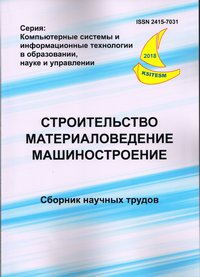Method of determining the duration of the project given uncertainty
DOI:
https://doi.org/10.30838/P.CMM.2415.270818.159.247Keywords:
project duration, uncertainty, simulation model, a network scheduleAbstract
Purpose. In any project management task, it is important to know its duration. It depends, obviously, on the duration of all the works that are part of the project. The duration of each work for similar projects can be determined on the basis of statistical data, if any. However, in this case, the estimate of the duration of some work as an average of the available sample will be inaccurate. In projects of creating new technologies, there are many non-standard works, and in this case the determination of their duration is much more complicated. In this case, it is advisable to use the representation of the duration of the project as a random variable. Then the duration of the project will also be a random variable, which corresponds to the real situation. The purpose of this work is to determine the probability interval for the duration of the project, which allows considering the risks in its implementation. This problem is solved for projects consisting of a sequence of works, some of which are parallel to other works. The technique. Due to the fact that for this type of project its duration is a non-linear function of the duration of work, it is analytically impossible to determine the distribution function. Therefore, it is proposed to solve the problem numerically using the Monte Carlo method. The calculations are made in the environment of the spreadsheet processor MS Excel, which is widely used in engineering and economic calculations. Results. For a particular project, a probabilistic simulation model has been developed, which allowed determining the project’s deadline for the implementation of the project, which with a high probability (95%) will not be exceeded. Scientific novelty. It is shown that it is possible to take into account the uncertainty of the timing of the project, using its simulation model. Thus, it is possible to take into account the risks associated with the implementation of the project as a whole and its parts. Practical value Knowledge of the reliable duration of the project allows the project organization to plan its work more efficiently: to better distribute the resources of the designers, to increase their productivity.References
Goldratt E.M. Kriticheskaya tsep = Critical Chain. [Critical Chain = Critical Chain]. Moscow: Potpourri, 2013, 240p. (in Russian).
Korolyuk V.S. Portenko N.I. Skorokhod A.V. and Turbin A.F. Spravochnik po teorii veroyatnostey i matematicheskoy statistike [Handbook of probability theory and mathematical statistics]. Moscow, Nauka, 1985, p. 640 (in Russian)
Lich L. Vovremya i v ramkakh byudzheta. Upravleniye proyektami po metodu kriticheskoy tsepi = Critical Chain Project Management. [On time and within budget. Critical Chain Project Management = Critical Chain Project Management]. Moscow, Alpina Publisher, 2014, p.360 (in Russian).
Miller R. PERT – sistema upravleniya [Control system]. Moscow, Economy, 1965, p. 202 (in Russian).
Ryjikov V.S. Yakovenko M.M. and Latysheva O.V. Proektnyy analiz [Project analysis]. Kyiv, Tsentr uchebnoy literatury [Center for Educational Literature]. 2007 p. 384 (in Ukrainian).
Mazhdrakov Metodi, Benov Dobriyan and Valkanov Nikolai. The Monte Carlo Method: Engineering Applications Academic Press, 2018, p. 250 (in English).
Downloads
Published
Issue
Section
License
Редакція Видання категорично засуджує прояви плагіату в статтях та вживає всіх можливих заходів для його недопущення. Плагіат розглядається як форма порушення авторських прав і наукової етики.
При виявлені у статті більш ніж 25% запозиченого тексту без відповідних посилань та використання лапок, стаття кваліфікується як така, що містить плагіат. У цьому випадку стаття більше не розглядається редакцією, а автор отримує перше попередження.
Автори, в статтях яких повторно виявлено плагіат, не зможуть публікуватися в усіх журналах Видавництва ДВНЗ «Придніпровська державна академія будівництва та архітектури».
Автори, які публікуються у цьому журналі, погоджуються з наступними умовами:
- Автори залишають за собою право на авторство своєї роботи та передають журналу право першої публікації цієї роботи на умовах ліцензії Creative Commons Attribution License, котра дозволяє іншим особам вільно розповсюджувати опубліковану роботу з обов'язковим посиланням на авторів оригінальної роботи та першу публікацію роботи у цьому журналі.
- Автори мають право укладати самостійні додаткові угоди щодо неексклюзивного розповсюдження роботи у тому вигляді, в якому вона була опублікована цим журналом (наприклад, розміщувати роботу в електронному сховищі установи або публікувати у складі монографії), за умови збереження посилання на першу публікацію роботи у цьому журналі.
- Політика журналу дозволяє і заохочує розміщення авторами в мережі Інтернет (наприклад, у сховищах установ або на особистих веб-сайтах) рукопису роботи, як до подання цього рукопису до редакції, так і під час його редакційного опрацювання, оскільки це сприяє виникненню продуктивної наукової дискусії та позитивно позначається на оперативності та динаміці цитування опублікованої роботи (див. The Effect of Open Access).

